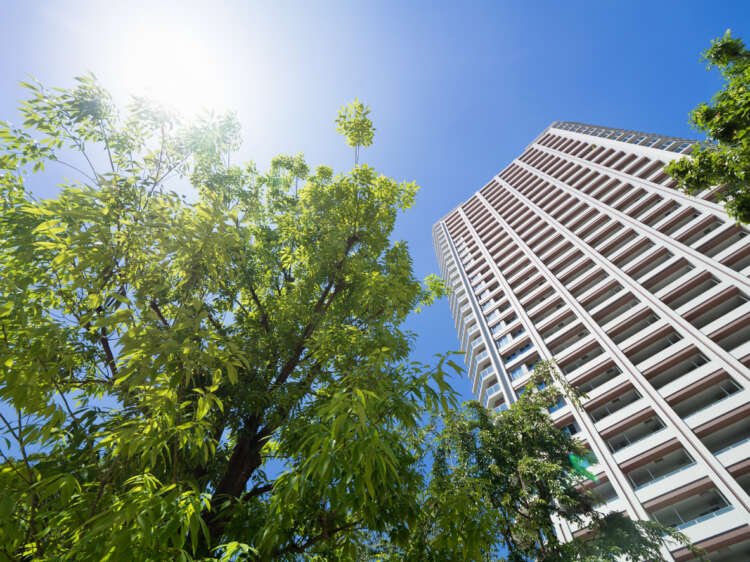ESG in hotel real estate: Green financing and the hotel operational edge
Published by Jessica Weisman-Pitts
Posted on February 15, 2023
5 min readLast updated: February 2, 2026

Published by Jessica Weisman-Pitts
Posted on February 15, 2023
5 min readLast updated: February 2, 2026

By Kimberly Yoong, Alumna of EHL Hospitality Business School
Hotel real estate is typically reputed to be a tricky asset class; its operational intricacies making it seem – to the unacquainted – less attractive than the lure of the traditional real estate classes of offices, logistics, and retail, which tend to be perceived as more stable.
The truth is, however, that hotels are often as versatile as they are misunderstood.
With various operating models from leases to management agreements, franchise agreements and everything in between, hotels are well-poised to offer a slice of the pie for every type of investor. Similarly, when it comes to green financing, hotels are no one-trick pony – its operational layer could in fact bring additional opportunities for obtaining that coveted green label, making them no less suitable for green financing than their ‘traditional’ counterparts.
Back to basics: Green real estate financing
Currently, there are a few common ways through which the eligibility of real estate assets for green financing is assessed, including:
With these methods, the ability of a hotel asset to become green eligible may be determined through one or both stages: (i) based on the building’s design and construction, for example, where sustainable materials had been extensively used for the building’s construction and fit-out; or (ii) while the building is operational, such as maximizing resource efficiency by employing energy or water saving means, or implementing social initiatives that contribute to the local community.
Accordingly, similar to other real estate asset classes, hotels may first and foremost qualify for green financing through appropriate design and construction methods. In addition to which, the operational aspect of hotels means that being maintaining ESG-friendly implementations throughout its useful life can also be a key piece to the compliance puzzle.
Operational edge: The green hotel advantage
The transient nature of hotels may make them seem inherently more resource-intensive, to cater to the higher volume and turnover of guests. The solution, however, would not be to simply get rid of hotels – but rather, make use of both the needs and opportunities for hotels to maximize their green potential.
Need: Environmentally-friendly initiatives such as introducing LED bulbs or solar panels have time and again proven to not only reduce resource usage, but also save costs. For hotels, maximizing operational efficiency is the cornerstone to uplifting cash flows and driving returns. In other words, both hotel owners and operators should have a common interest in implementing such measures that can help the environment whilst increasing profit margins.
Opportunity: Hotels may also benefit from having a single operator, who has greater control over implementing environmental initiatives during its operations. In 2010, the ITC Maurya hotel in New Delhi, India, received the world’s first LEED Platinum certification under the ‘Existing Building’ category – part of its initiatives being operating a private biogas plant, which could recycle and reuse 99 per cent of their solid waste, with the organic components being reused as manure.
Meanwhile in contrast, other asset classes may not have the operational capabilities to implement such initiatives, while having multiple tenants could also fragment efforts by leaving the onus on individual tenants to reduce their usage.
Putting the ‘S’ in ESG
In terms of the oft-forgotten social aspect of ESG, hotels generally thrive on individuality and ‘going local’ – hotels in the middle of a Balinese jungle or a previously uninhabited islet in the Adriatic Sea are not unheard of, and often seek to add that local flair to their offering.
Sitting 2,000-metres above sea-level, the Alila Jabal Akhdar in Oman is one demonstration of such local integration. Intentionally built to blend into the destination’s natural landscape, traditional Omani construction techniques and local stones were used to deliver a local and sustainable guest experience. Similarly, initiatives such as One&Only Reethi Rah’s turtle rehabilitation habitat, which seeks to provide a specialized sanctuary for injured turtles, also demonstrate how hotels may help promote biodiversity in its community.
In addition, hotels have a characteristically larger operational workforce from a variety of backgrounds, which means contributing to local employment as well as providing a diverse work environment, all of which may help to highlight the ‘S’ in ESG.
Just the beginning
Despite its potential, however, green hotel assets currently remain fairly scarce in the market, majority of which tend to be new builds or recent renovations. The reality is that the nature of (operational) real estate means that building anew or retrofitting will still require significant time and/or capital expenditure to bear fruit in the green market, while establishing and maintaining meaningful ESG-friendly measures throughout a hotel’s operational life would mean a conscious, concerted – but not impossible effort.
Green financing refers to funding aimed at projects that have positive environmental impacts, such as energy efficiency and sustainable development.
ESG stands for Environmental, Social, and Governance criteria, which are standards for a company's operations that socially conscious investors use to screen potential investments.
Energy efficiency in hotels involves using less energy to provide the same service, often through technologies and practices that reduce energy consumption.
A green certification is an official recognition that a building or project meets specific environmental standards, such as LEED or BREEAM.
Explore more articles in the Investing category











